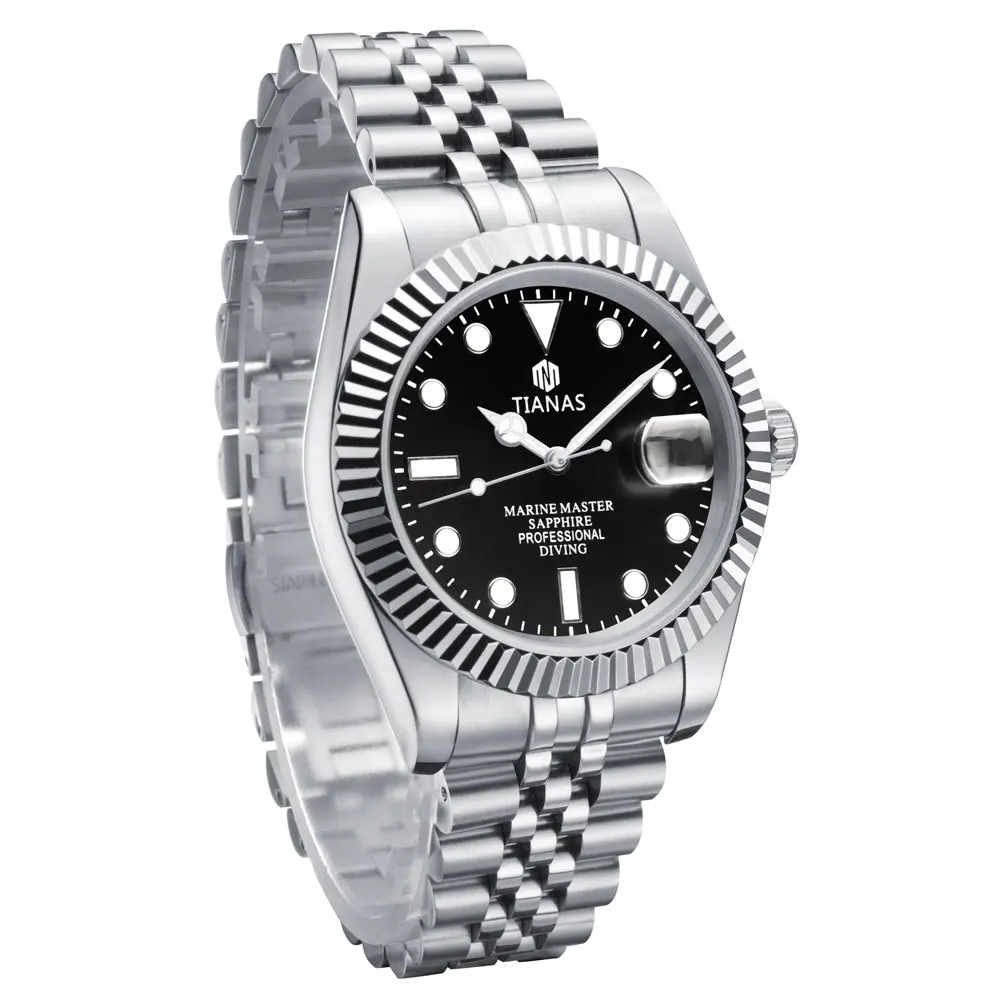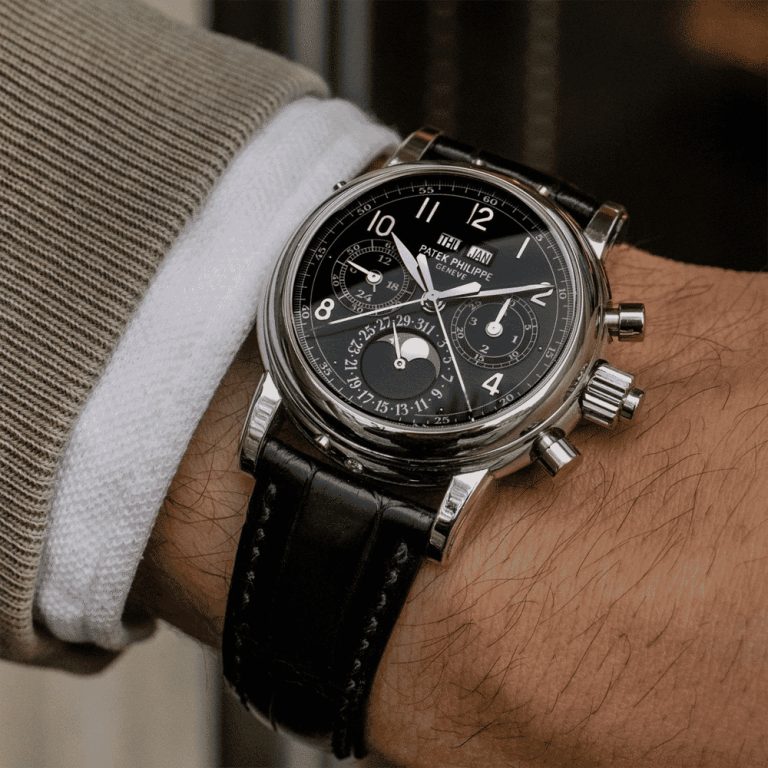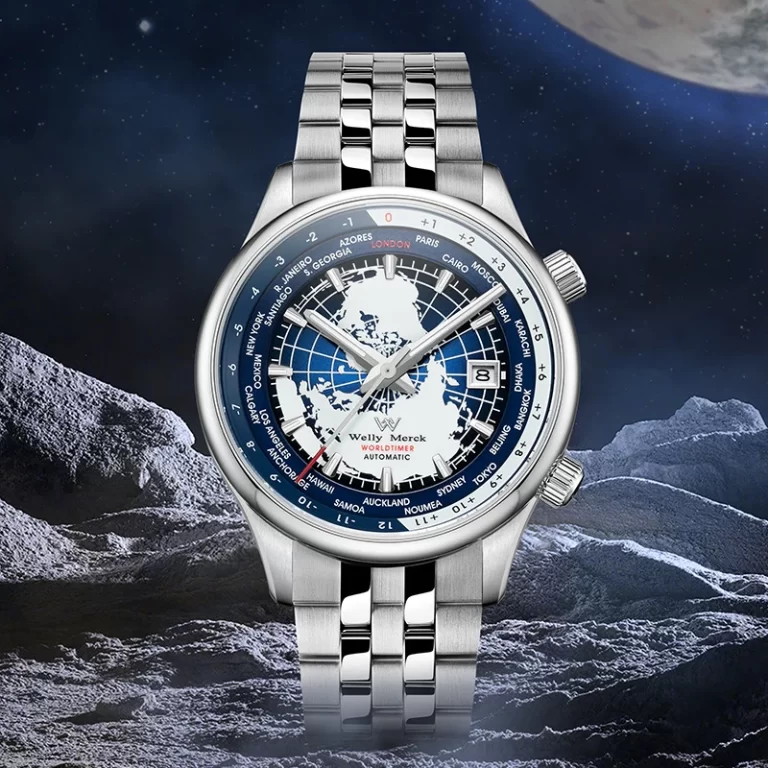Introduction to Quartz Dive Watches
Quartz dive watches have become a significant part of the watch industry, especially for underwater enthusiasts. Traditionally, dive watches relied on mechanical movements. These mechanical watches, while celebrated for their craftsmanship, required regular winding and maintenance. Over time, the rise of quartz technology changed the landscape. Quartz dive watches combine the durability of classic dive watches with the accuracy and low maintenance of quartz movements. This article delves into the reasons behind the popularity of quartz dive watches, their advantages, and how they have transformed underwater timekeeping.
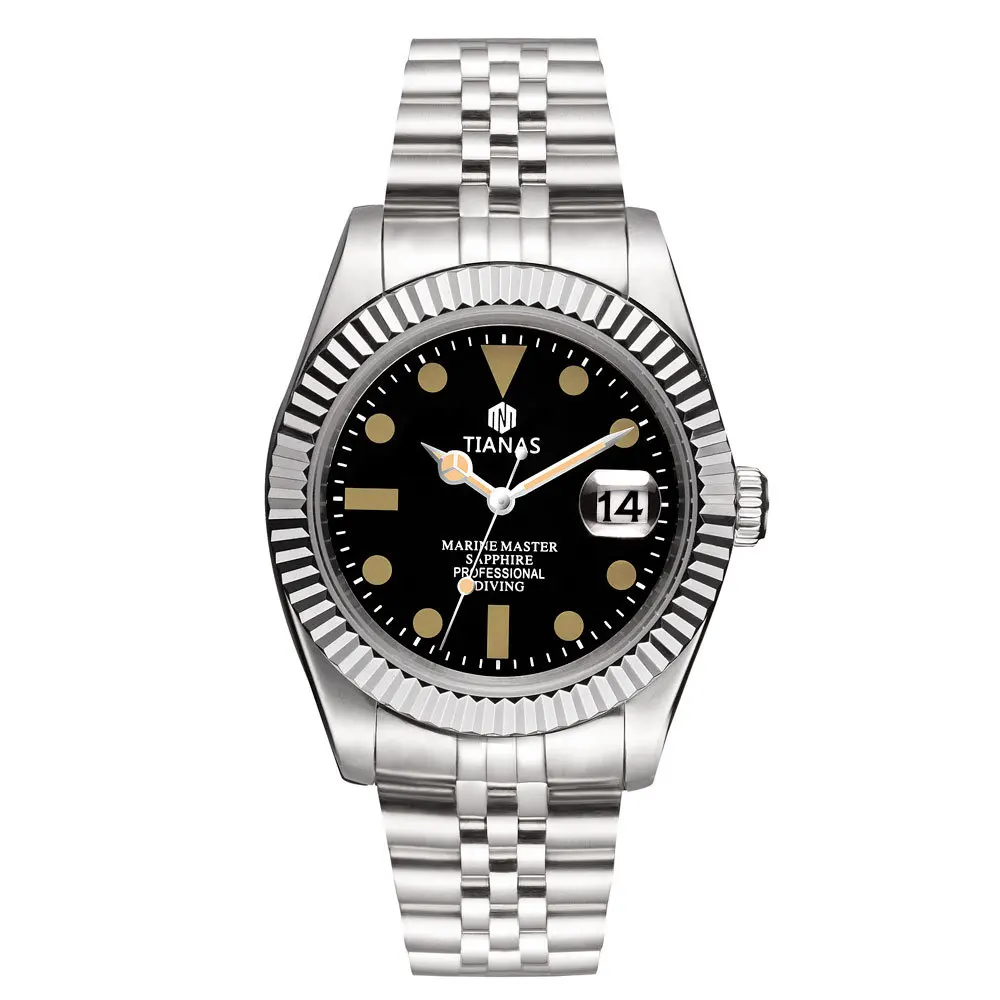
The Evolution of Dive Watches
Early Mechanical Dive Watches
Dive watches have been essential tools for underwater explorers since their inception. The journey began with mechanical dive watches in the early 20th century. These watches were designed to withstand the high pressure of deep-sea diving. They featured robust cases, strong water resistance, and luminous dials for visibility in dark underwater environments. The mechanical movement, powered by gears and springs, was the core of these watches. Divers trusted these timepieces for their reliability and precision.
The early dive watches set high standards for performance. They had features like unidirectional bezels to track dive time and high luminosity for readability. Despite their mechanical reliability, these watches needed frequent winding and regular servicing to ensure accuracy. This maintenance requirement sometimes limited their appeal.
The Advent of Quartz Technology
The 1970s marked a revolutionary period in the watch industry with the introduction of quartz technology. Quartz movements, powered by a battery and a quartz crystal, offered unparalleled accuracy. Unlike mechanical movements, quartz watches did not need regular winding and were less affected by external factors like temperature and gravity. The quartz crystal oscillator vibrates at a precise frequency, keeping the time with minimal deviation.
For divers, the accuracy of quartz movements was a significant advantage. Quartz dive watches could maintain accurate timekeeping with minimal adjustments. This innovation made them increasingly popular among divers who valued precision and reliability. The introduction of quartz technology also brought down the cost of high-quality dive watches, making them more accessible.
Combining Quartz and Dive Watch Features
As quartz technology advanced, manufacturers began integrating it into dive watches. The result was a new generation of dive watches that combined the robustness of traditional models with the accuracy of quartz movements. These watches featured reinforced cases, improved water resistance, and advanced luminous dials. The quartz movement allowed for precise timekeeping without the need for frequent servicing.
This blend of features addressed the needs of modern divers. Quartz dive watches became known for their durability, accuracy, and ease of maintenance. The increased affordability of quartz dive watches also made them accessible to a broader audience. Today, quartz dive watches represent a perfect fusion of traditional dive watch features and cutting-edge technology.
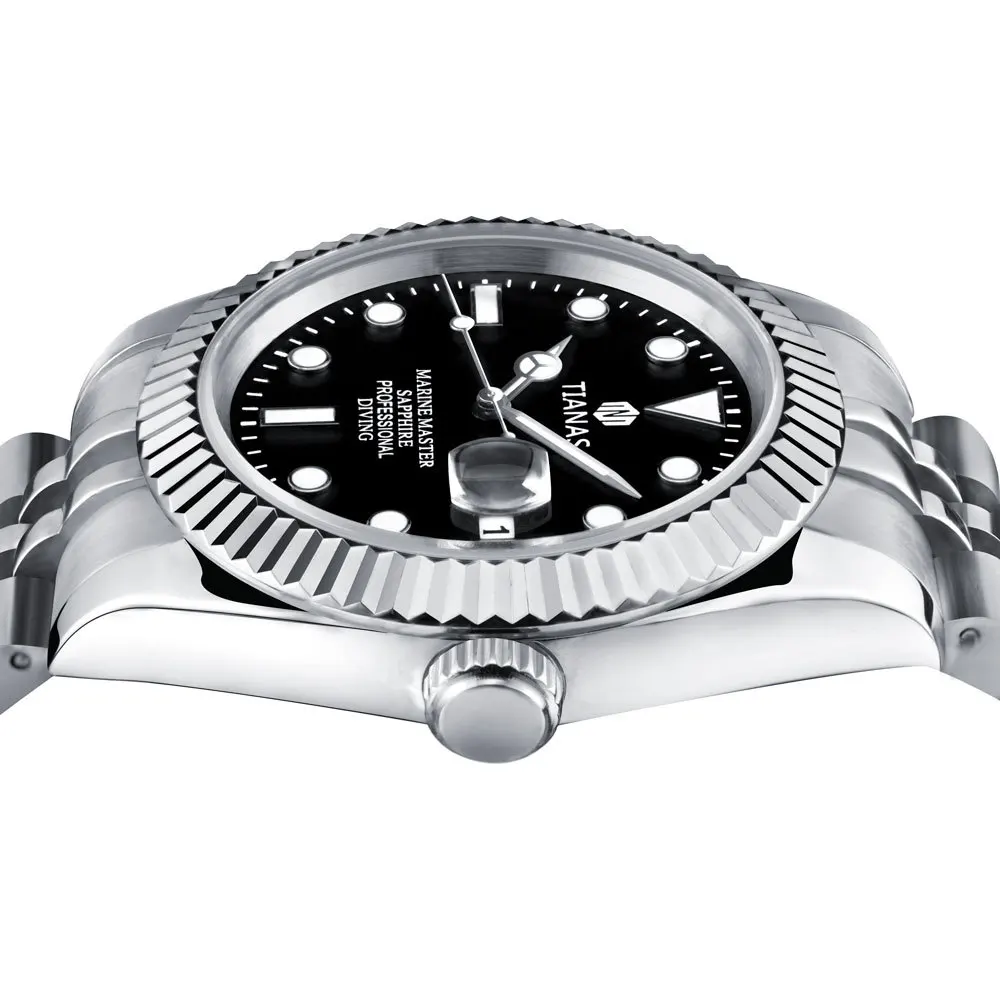
The Advantages of Quartz Dive Watches
Precision and Accuracy
Quartz dive watches stand out for their exceptional precision. The quartz movement is known for its accuracy, often deviating by only a few seconds per month. This is due to the quartz crystal’s consistent vibration frequency, which ensures reliable timekeeping. For divers, precision is crucial. Accurate timing helps in managing dive durations and decompression stops. A quartz dive watch guarantees that divers can rely on their watch to keep accurate time even in challenging underwater conditions.
Mechanical dive watches, in comparison, can experience inaccuracies due to their complex gear systems. Factors like temperature changes and the Earth’s gravity can affect their performance. Quartz dive watches, however, are less susceptible to these variables. Their stable timekeeping makes them ideal for underwater adventures where precision is essential.
Durability and Longevity
Durability is another key advantage of quartz dive watches. Mechanical movements have many moving parts that can wear out over time, leading to potential failures. Quartz movements, with their simpler design, have fewer components and are generally more robust. This reduced complexity translates into a longer lifespan and greater reliability.
Modern quartz dive watches are built to withstand extreme conditions. They feature reinforced cases, scratch-resistant crystals, and secure crowns to protect against water ingress. These design elements ensure that the watch remains functional even after extensive use. For divers, this durability means they can rely on their watch to perform consistently in deep-sea environments.
Low Maintenance Requirements
One of the most appealing aspects of quartz dive watches is their low maintenance requirements. Mechanical dive watches often require regular servicing to maintain accuracy. This servicing involves disassembling the watch, cleaning the components, and lubricating the movement. Such maintenance can be time-consuming and costly.
In contrast, quartz dive watches are much easier to maintain. The primary maintenance task is replacing the battery, which usually needs to be done every few years. The simplicity of quartz movements means there is less need for frequent repairs or adjustments. This ease of maintenance makes quartz dive watches a practical choice for both casual and professional divers.
Technological Advancements in Quartz Dive Watches
Advanced Quartz Movements
The evolution of quartz technology has led to the development of advanced quartz movements. These movements offer enhanced accuracy and performance compared to earlier models. For instance, thermocompensated quartz movements adjust the frequency of the quartz crystal based on temperature changes. This feature helps maintain accurate timekeeping in varying underwater temperatures, a crucial aspect for divers.
High-frequency quartz crystals are another advancement. They vibrate at a higher frequency, providing even greater accuracy. These movements reduce timekeeping errors and improve overall performance. Divers benefit from these advancements as they ensure their watches remain precise and reliable in diverse underwater conditions.
Improved Water Resistance
Water resistance is a critical feature of dive watches, and quartz dive watches have made significant strides in this area. Modern quartz dive watches often incorporate advanced sealing systems to ensure they remain watertight at great depths. Features like reinforced gaskets, screw-down crowns, and double-locking clasps prevent water from entering the watch.
Some quartz dive watches also include helium escape valves. These valves allow the release of helium gas that can accumulate during deep-sea dives. By preventing gas build-up, helium escape valves protect the watch’s crystal and maintain its water resistance. These technological improvements make quartz dive watches highly reliable for deep-sea diving.
Enhanced Luminosity and Readability
Visibility underwater is a key consideration for dive watches. Quartz dive watches often come equipped with enhanced luminosity features to ensure readability in low-light conditions. High-quality luminescent materials, such as Super-LumiNova, are used for the watch’s hands and markers. These materials glow brightly, allowing divers to read the time easily.
Some modern quartz dive watches also feature backlighting or LED displays. These technologies further improve readability in dark environments. The combination of advanced luminous materials and lighting features ensures that divers can always see the time, regardless of the underwater conditions.
The Impact of Quartz Dive Watches on the Diving Community
Accessibility and Affordability
Quartz dive watches have had a profound impact on the diving community by increasing accessibility and affordability. The introduction of quartz technology allowed manufacturers to produce high-quality dive watches at lower costs. This affordability has made quartz dive watches accessible to a wider range of divers, from enthusiasts to professionals.
The lower price point of quartz dive watches does not mean a sacrifice in quality. Many quartz models offer features and functionalities comparable to more expensive mechanical watches. This accessibility ensures that divers can find reliable and high-performing timepieces without spending a fortune.
Popularity Among Divers
The popularity of quartz dive watches among divers reflects their effectiveness and reliability. Many divers prefer quartz watches due to their precision and ease of use. The ability to trust a watch for accurate timekeeping without constant adjustments or maintenance is highly valued in the diving community.
Quartz dive watches are also known for their durability. The rugged construction and resistance to shocks make them ideal for the demanding conditions of underwater exploration. Divers appreciate the consistent performance of quartz watches, which can withstand the pressures of deep-sea environments.
Influence on Watchmaking Trends
The success of quartz dive watches has influenced broader trends in the watchmaking industry. The rise of quartz technology has prompted many watch brands to explore and incorporate quartz movements into their collections. This trend has led to increased innovation and competition, benefiting consumers with a wider range of options.
Quartz dive watches have also inspired advancements in mechanical dive watches. Manufacturers have adopted features from quartz models, such as improved water resistance and luminosity, into their mechanical offerings. This cross-pollination of ideas has resulted in better overall quality and performance across the industry.
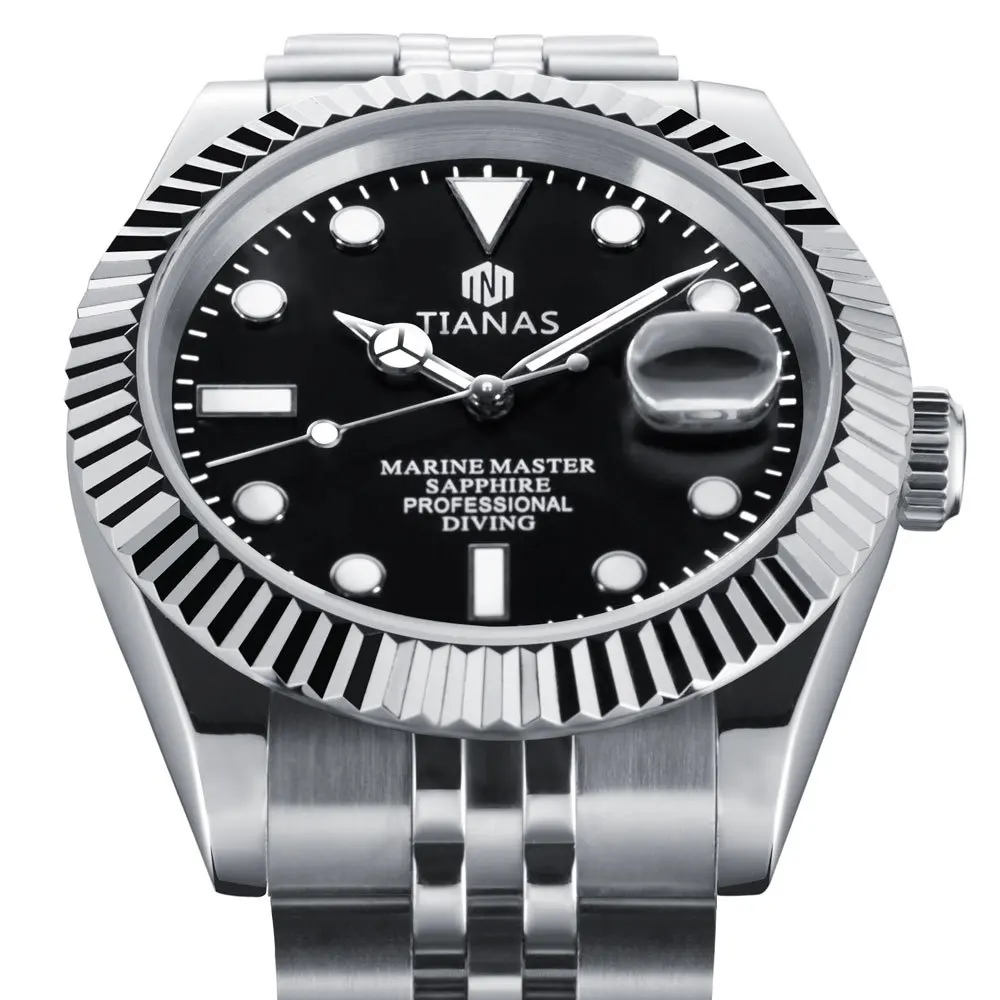
Conclusion: The Future of Quartz Dive Watches
Quartz dive watches have made a lasting impact on underwater timekeeping. Their precision, durability, and technological advancements have set new standards for dive watches. The continued evolution of quartz technology promises even greater innovations in the future.
As the demand for reliable and high-performing dive watches grows, quartz technology is likely to play an increasingly prominent role. The combination of accuracy, low maintenance, and advanced features ensures that quartz dive watches will remain popular among divers and watch enthusiasts. The legacy of quartz dive watches reflects a commitment to excellence and innovation in horology, promising exciting developments for the future.
